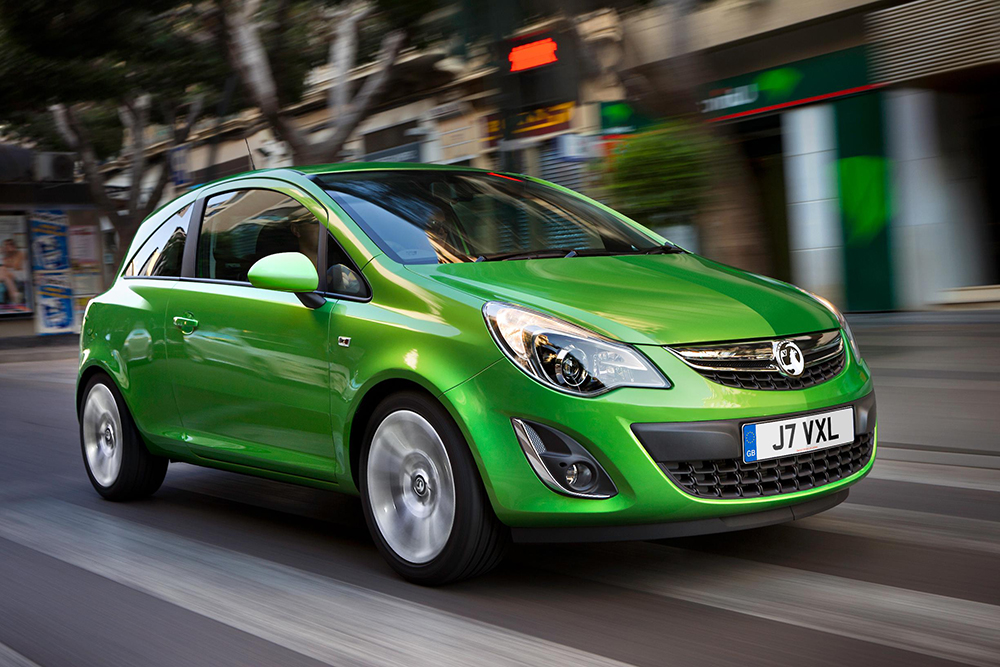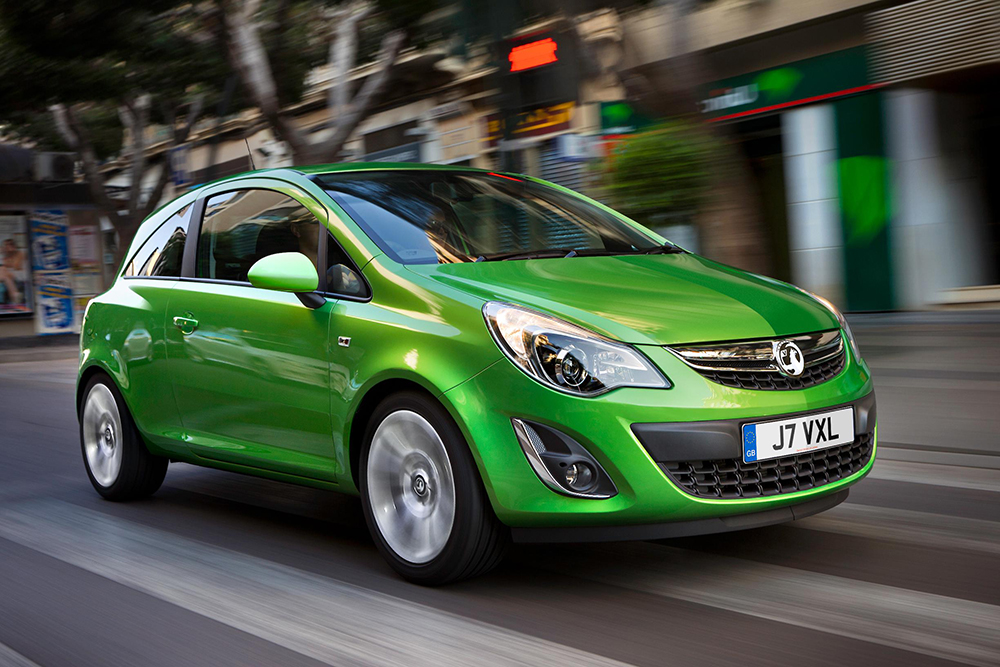Vauxhall Corsa Mk 3 review (2006-2014)
As one of Britain’s top-three selling cars, the Corsa is everywhere: in car hire fleets and driving schools, and on hundreds of thousands of British driveways.
What is the Vauxhall Corsa?
As one of Britain’s top-three selling cars, the Corsa is everywhere: in car hire fleets and driving schools, and on hundreds of thousands of British driveways. The supermini is designed to be flexible and to that end comes with three or five doors. It’s small enough to manoeuvre in tight traffic but has enough space to carry adults in the back, as well as a decent amount of luggage in the boot. The model range starts with a 1-litre petrol version and goes up to the sporting 1.6-litre turbo VXR, offered in three-door form only.
Although it is popular, the Corsa is positively geriatric by modern standards and is due to be replaced shortly. Expect the next-generation model to be unveiled in autumn. It has fallen behind rivals such as the Ford Fiesta, Volkswagen Polo and Kia Rio which offer everything the Corsa does, and more. But the Corsa may still be worth considering because there are bargains to be had. If you’re set on one, haggle hard, whether paying in cash or with finance. The fact is, the model depreciates heavily, so will be worth a fraction of its value after three years of ownership.
The drive
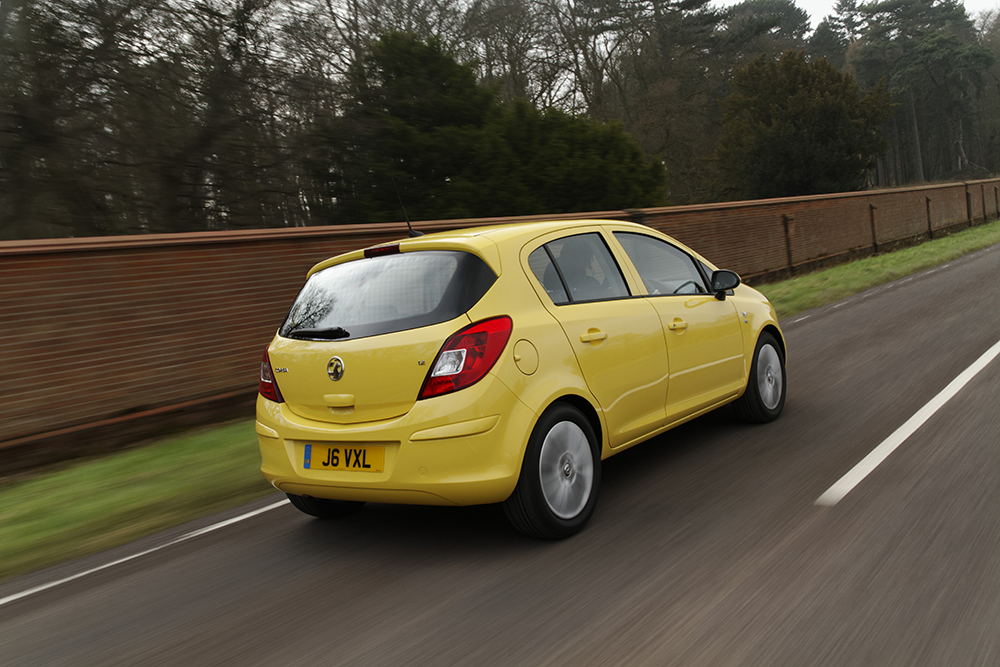
If you’re looking for a car that’s competent, then the Corsa fits the bill. It’s comfortable on rough roads with safe, predictable handling, light steering and an engine line-up that, on the whole, offers decent fuel economy. It might be designed with city driving in mind, but the Corsa is also a relaxed motorway cruiser.
But if you want a bit more inspiration from your car, then this supermini disappoints. It gives the impression its engineers were happy to settle with average, so while the manual gearbox is precise, it feels rubbery and unsatisfying to use. The suspension allows the car to bounce a little too much over potholes and lean noticeably in corners. And that light steering provides none of the feel that can help a driver to judge the road surface and available grip.
These niggles are unlikely to worry you if you’re happy to buy a car as just another white good; less worried about its high-speed handling and more concerned that it will be reliable and cheap to run. In that respect, the current Corsa is among the class leaders. Its warranty, for the first owner, lasts 100,000 miles, no matter how long it takes to reach that milestone. There are good finance deals available too, or big discounts to be negotiated.
The range promises decent fuel economy. Some of the engines might feel underpowered and sound noisier than the class standard but all of the petrol engines, bar the 1.6-litre, return more than 50mpg according to official figures (expect more like 40mpg in the real world).
Pick the non-turbocharged 1.4 petrol for decent performance at a reasonable price. Diesel buyers will want to try and stretch to the 95PS (94bhp) version. It’s slow but emits 88g/km of CO2, which means road tax is free. It also does 85.6mpg, again according to the official figures.
The only Corsa with fire under its bonnet is the 1.6 turbo VXR, but it’s more expensive than the excellent Ford Fiesta ST, which would be our pick on any day of the week. Cars with SRi or Limited Edition trim have sports suspension, but the firmer ride isn’t worth it.
The interior
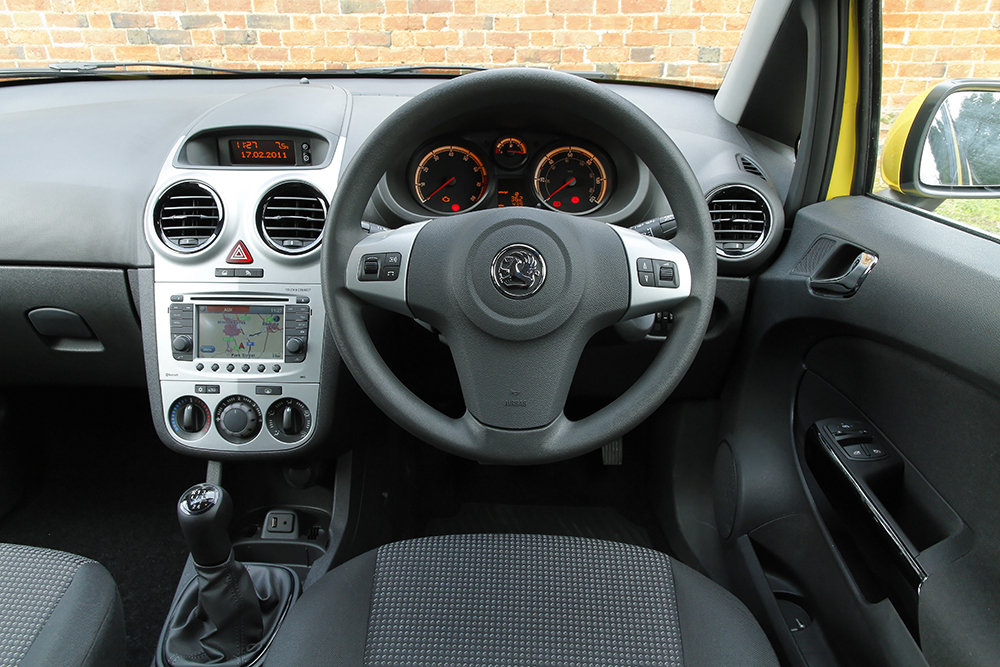
Carrying four adults and a weekly shop is a doddle in the Corsa. Rear legroom is good for the class, as is the boot. It has a capacity of 285 litres with the rear seats up and 1,050 litres with them down (1,100 litres in the five-door).
The interior might appear basic but it’s beautifully simple to use with big chunky dials and clear labelling. A touchscreen sat nav is available for £750 if desired. There are enough cubbyholes and cupholders to satisfy even compulsive hoarders, but the car is showing its age in the quality of its materials which feel cheap compared with those in a Volkswagen Polo.
That said, the Corsa has a five-star Euro NCAP safety rating like its rivals, and two Isofix child-seat mountings in the back. A front-seat mounting can be fitted for an additional £115.
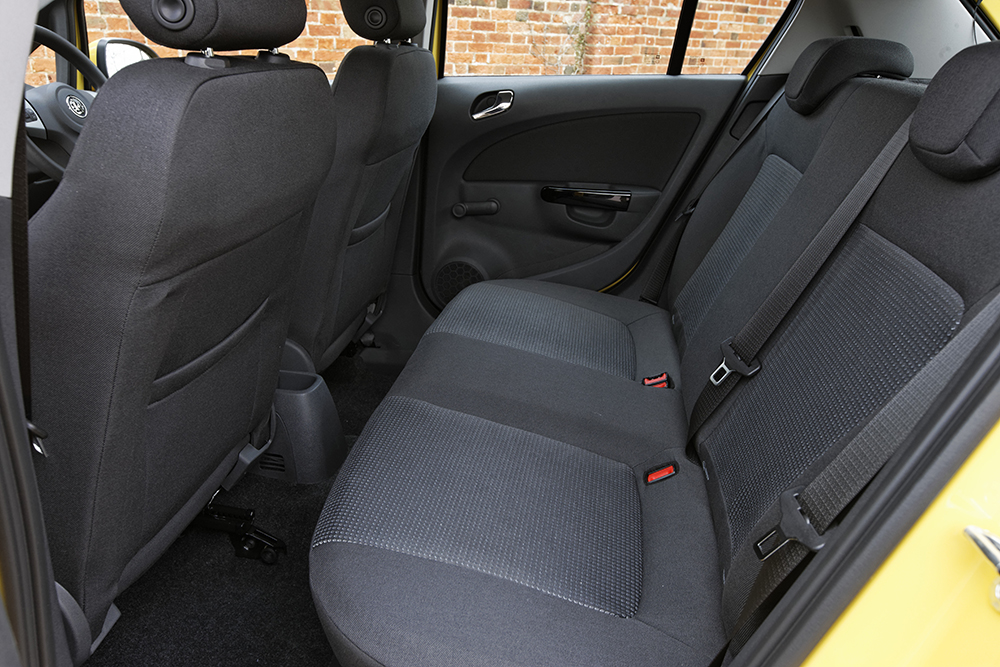
Design level trim offers a reasonable level of equipment including driver’s seat height adjustment, and electric and heated mirrors, as well as steering wheel audio controls. Prices start from £10,475. Air conditioning adds £500.
If safety is a major feature, though, you will want to opt for SE trim. This brings curtain and front seat airbags that improve protection in side impacts. Air-conditioning is standard and you’ll also get heated seats, a trip computer and cruise control, but it’s a hefty £3,500 premium over Design cars.
What to look out for when buying a used Vauxhall Corsa
Low-mileage drivers should choose a petrol-powered model, as it will cost less to buy and the fuel is cheaper. Windscreen wiper motors can fail and so do heater fan switches, leaving you with maximum speed or nothing. Cars that have been subjected to a hard life by young drivers aren’t rare and neither are ex-driving school or hire cars, so carefully check a car’s history with its vendor and look through the logbook and any accompanying invoices for clues it was registered to a large organisation.
Tired brakes, worn suspension and part-time central locking are the other key faults to check for. There have been half a dozen recalls for the Corsa, and none for minor things. Vauxhall has issued two notices because of the steering potentially failing, another two because the braking system’s power assistance could pack in and another pair because of the possibility of the handbrake failing altogether.
The one to buy
Vauxhall Corsa Design (a/c) 1.4i 16v VVT 3dr
Factfile
Price:
£11,525
Engine:
1398cc, 4-cylinder petrol
Power:
99bhp @ 6000rpm
Torque:
96 lb ft @ 4000rpm
Transmission:
5-speed manual
Acceleration:
0-62mph: 11.9sec
Top Speed:
112mph
Fuel:
51.4mpg (combined)
CO2:
129g/km
Road tax band:
D
Dimensions:
L 3999mm W 1944mm H 1488mm


